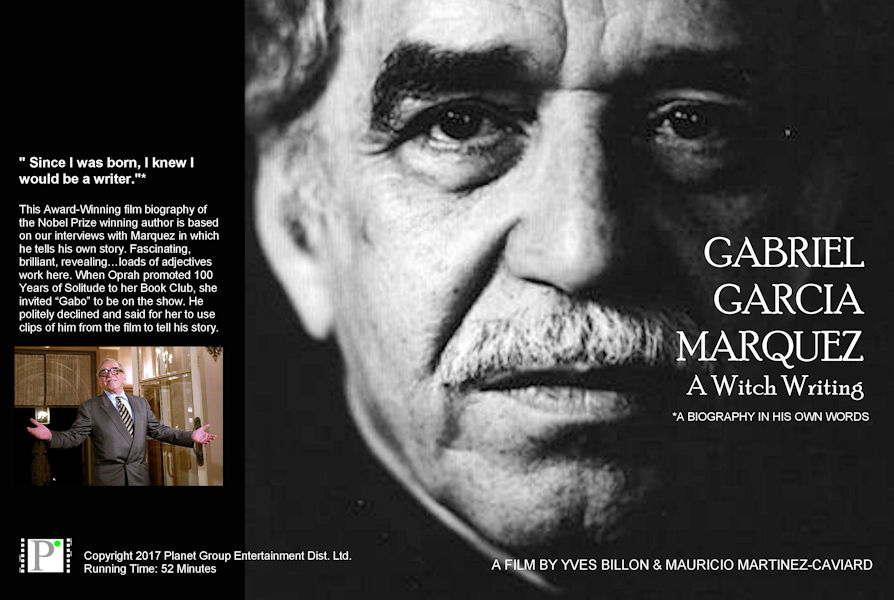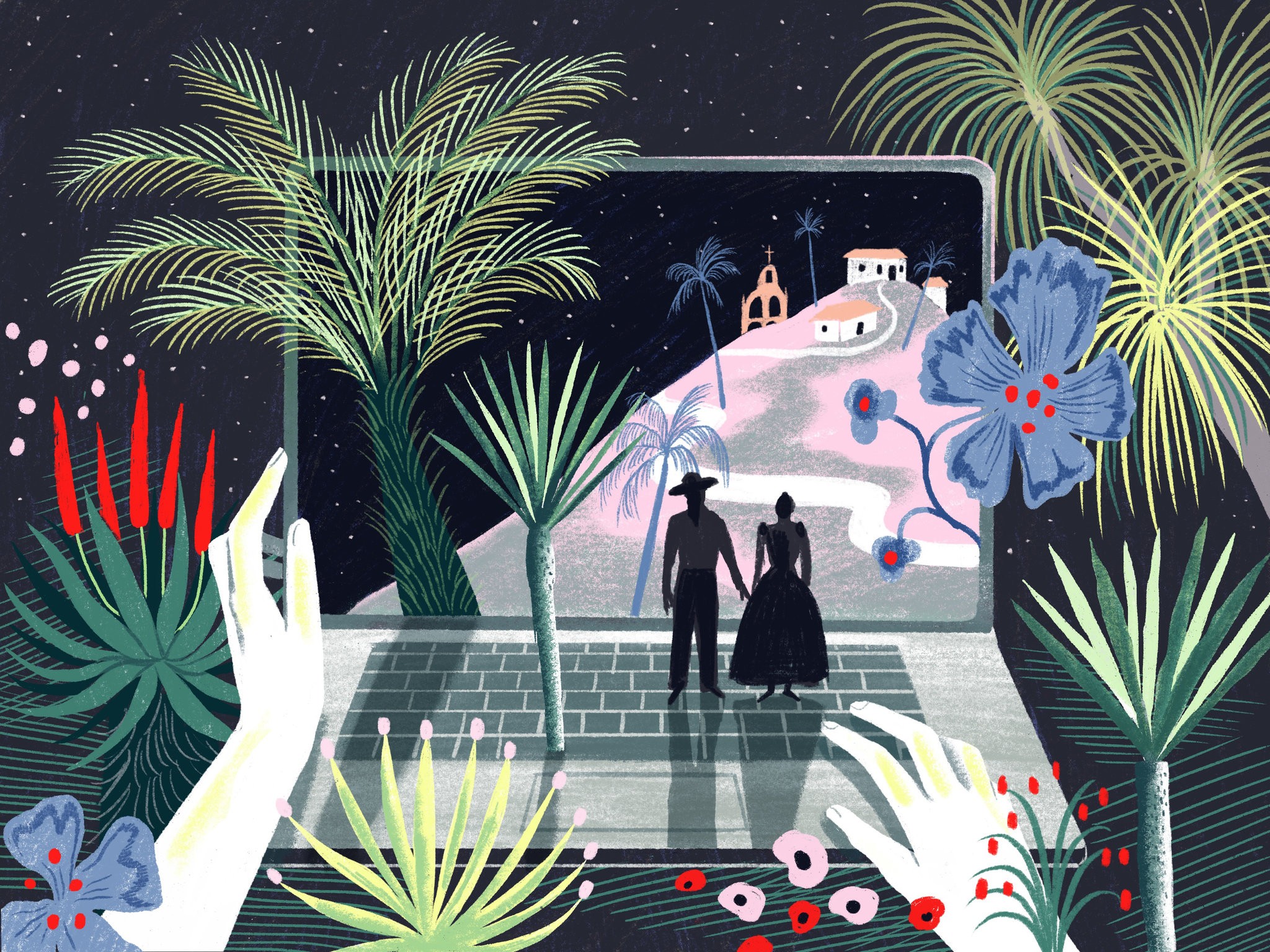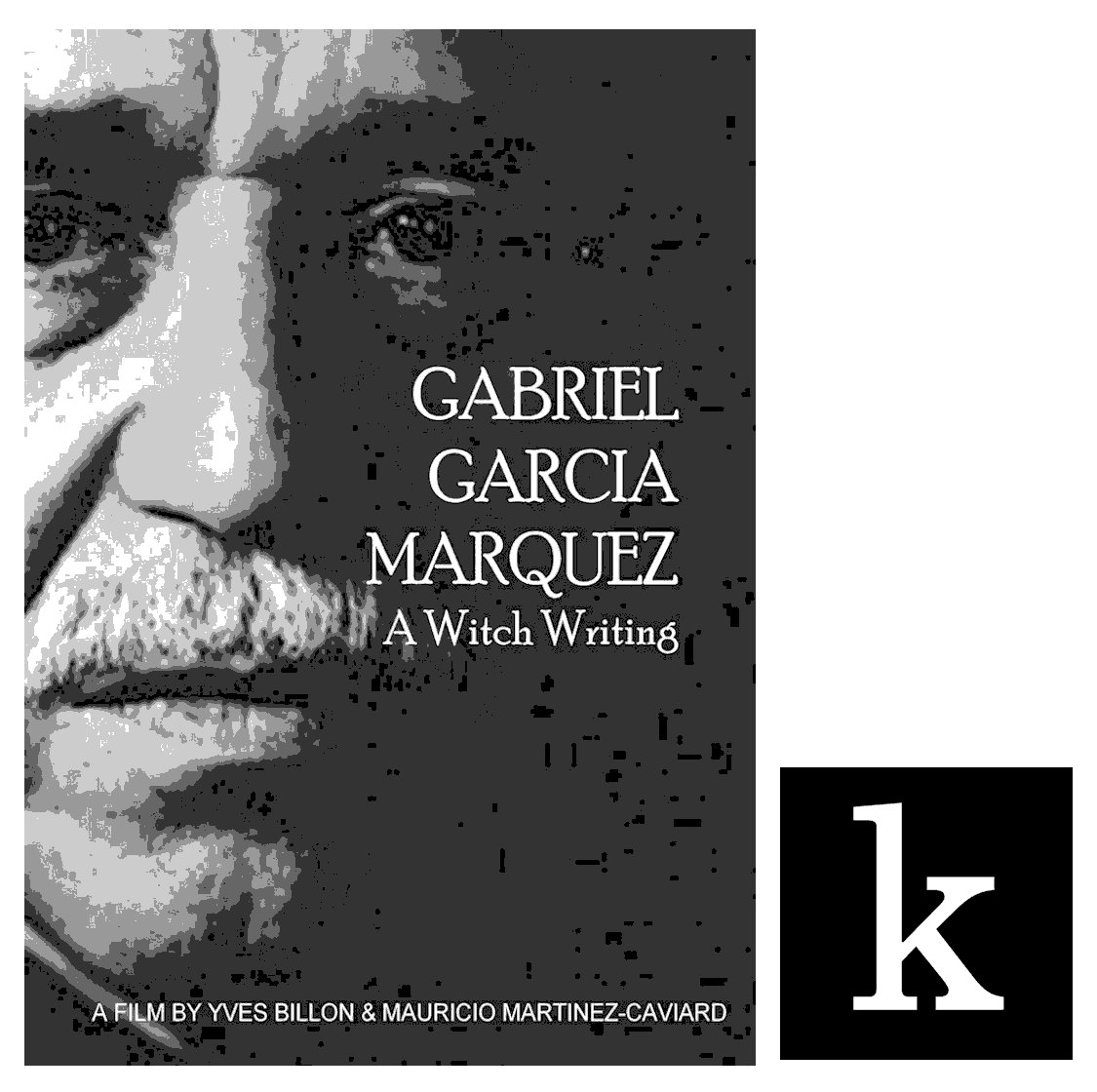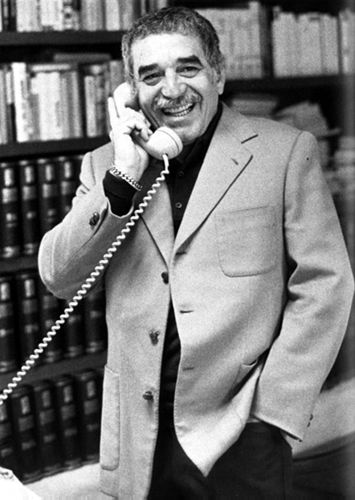"Gabriel Garcia Marquez" for Library Distribution
 Tuesday, September 14, 2010 at 07:39AM
Tuesday, September 14, 2010 at 07:39AM

Gabriel Garcia Marquez, Nobel prize-winning author of such luminous novels as 'One Hundred Years of Solitude' and 'Love In The Time Of Cholera', was born in 1928 in the tiny Caribbean village of Aracataca, situated in a tropical region of northern Colombia in the home of his grandfather, a pensioned colonel from the civil war at the beginning of the century. This is the setting for the imaginary, magical world of his writing, and the setting for this very special film…a wondrous recreation of the life and times that gave birth to his own lyrical creations…
NETFLIX to make "100 Years of Solitude" Series -New York Times

VIEW TRAILER HERE:
MarquezCollegeUniversityPagePromoClip from sarasotafringefilms on Vimeo.
NOTE: STANDARD ACADEMIC DVD and Digital File PRICING AND ORDERING DETAILS ARE LISTED BELOW OR STREAM VIA KANOPY: Gabriel Garcia Marquez: kanopy.com/product/gabriel-garcia-marquez

Marquez is now also available for streaming on Kanopy.
‘Whether writing short stories, epic novels, non-fiction or screenplays, Gabo, as he is affectionately known, is above all a brilliant storyteller. His writing is a tribute to both the power of the imagination and the mysteries of the human heart. In Gabo’s world, where flowers rain from the sky, and dictators sell the very ocean, reality is subject to emotional truths as well as physical boundaries. It is a world of great beauty and great cruelty, a world where love brings both redemption and enslavement; and a world where the lines between objective reality and dreams are hopelessly blurred. It is a world very much like our own.”
A Quote from the VideoLibrarian Review...
"What’s unique about the film is there is no interviewer peppering the writer with questions. We instead are given fifty-three minutes of Marquez himself discussing his upbringing and literary process. While somewhat unconventional, this makes for a more intriguing documentary, as you get a glimpse into the man himself sans outside interference. You’re given a glimpse not into his literary successes but his lesser-known projects, including his stints as a screenwriter, journalist, law school student, and much more."
 Gabo takes a call from "Oprah".
Gabo takes a call from "Oprah".
The film reveals the author as a skillful and spellbinding storyteller, taking us from birth ("Since I was born I had known I would be a writer.") to the turning points in his life that formed him and his body of work. The first eight years of Gabo’s life are spent at the house of his grandfather. They are the only two males in a house full of women; women who live in a supernatural world of curanderas, brujas and sorcery. Here, everything is possible and part of everyday life. For them the ordinary world is but a veil behind which lurk beings far beyond normal human ken. Their influence becomes important to the boy's own way of thinking.
Grandfather is much more down to earth. The ‘Colonel’ plays a pivotal role in the boy’s life, and his future literature. The old man speaks to Gabo as an adult, of the realities and politics of their turbulent country. When his grandfather dies and the young Gabriel is sent off to boarding school, he is torn away from his fantastic childhood world. But the stories lay deep in his memory. The nostalgia for this land of 'magical realism' would be the wellspring and "even the longest life would not be enough to tell about it."
But Marquez will always travel between the two worlds of magic and reality, and the paradoxes of his past give rise to the complex, finely woven threads of future narration. In Bogota, a turning point comes for the young law student when he reads of Franz Kafka's 'Metamorphose', from the first line: "Grégoire Samas awoke one morning from uneasy dreams to find himself transformed into a giant insect."
The story also transforms the struggling young law student. A moment of truth ("That is the way I think!"), and Marquez finds his own writing voice. He pens his first short story, and never looks back, breaking his law studies for his work as a journalist.
In the late 1940's, against a climate of social and political unrest in Colombia, military plunder and the torching of his Bogota law school, Marquez returned to the Caribbean, to work as a journalist and short-story writer. But the perspective he requires to write about his grandfather and the convoluted politics of Colombia take him first to Rome in 1954, where he was sent on assignment by his newspaper, then to Paris, where he becomes acutely aware of his Caribbean culture.
It is the "Time of the Dictators", and Paris is full of other Latin American expatriates: Peru, Santo Domingo, Venezuela. All live in the same neighborhood, awaiting news from their respective countries, all in the throes of unrest. A hoarse shout from a window, "He has fallen!", and everyone rushes to the streets, thinking it 'their own' dictator!
Even though he was Colombia’s most famous citizen long before he received the Nobel Prize in Literature in 1982, Gabo has mostly lived abroad in a sort of self-imposed exile. His home in Bogata has never been his main residence. He and his wife and family have for many years spent most of their time in Mexico City and part of the year in their other homes in Cuernavaca, Barcelona, Paris, Havana, Cartagena, and Barranquilla, on the Caribbean coast.
Marquez writes with great insight and joyous humor, but his saddest and hardest book to complete concerns the appalling drug wars of Colombia. After forty years of unrelenting bloodshed, his country now has the dubious distinction of being the kidnapping capital of the world. Marquez uses his fame to fight this scourge of his homeland, to campaign for human rights, and to meet with world leaders, seeking solutions.
Balanced between both worlds, Gabriel Garcia Marquez looks beyond the veil of this world into the world of magical realism. Did he hold any hope for the future of this one?
Standard Academic DVD and File Purchase Options for Gabriel Garcia Marquez:
If your system is not PayPal “friendly”, we will accept your purchase order or send you an invoice payable by check or credit card. For details on purchase orders, please contact: nagle.patrick@gmail.com
A Note About Our Academic and Institutional Pricing
Educational DVD with PPR: $150
Anytime you want to screen a film on campus, Public Performance Rights (PPR) need to be obtained. Copyright law (USC 17§101) defines a public performance as occurring in a public space or if it is in any place if "a substantial number of persons outside of a normal circle of a family and its acquaintances" is gathered there. This would include classrooms, meeting rooms, auditoriums, dorm lounges, etc. However, copyright law (USC 17§110) also provides an exception for face-to-face teaching activities in a nonprofit educational institution.
Digital Site License with PPR: $200
A DSL grants educational institutions and/or non-profit organizations a limited license to host and stream a film online to students, faculty and staff on their password-protected server. This license is granted for three years. The key advantage of purchasing a DSL is that once uploaded, an unlimited number of viewers can access the film from multiple locations simultaneously.
DVD + DSL bundle PPR: $225
K-12, Non-profit, Public Library with PPR: $64.50
Personal DVD or File Download: $24.50
